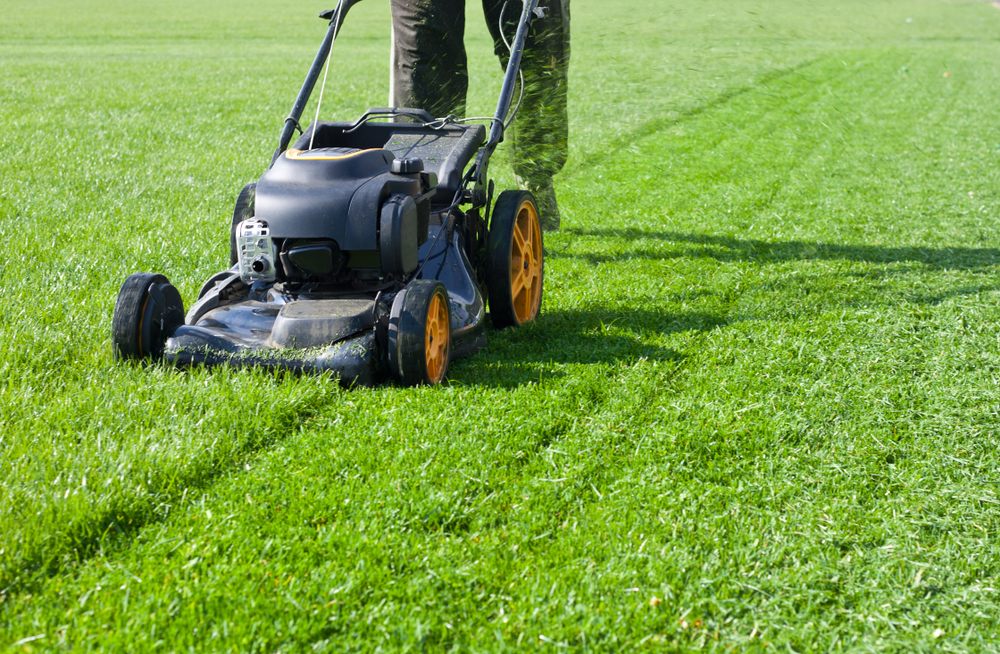Mulching your lawn can make it healthier. It also saves you time and water. Let’s explore the benefits of mulching your lawn.

Credit: www.designoneinc.com
What is Mulching?
Mulching is the process of covering the soil with a layer of material. This material can be grass clippings, leaves, straw, or wood chips. Mulching helps protect your lawn and keeps it healthy.
Top Benefits of Mulching Your Lawn
1. Improves Soil Health
Mulching adds nutrients to the soil. These nutrients help grass grow strong and healthy. As the mulch breaks down, it releases nutrients into the soil.
2. Conserves Water
Mulch helps retain moisture in the soil. This means you need to water your lawn less often. It also helps during dry seasons.
3. Reduces Weeds
Mulching can prevent weeds from growing. The mulch blocks sunlight from reaching weed seeds. This stops them from sprouting.
4. Prevents Soil Erosion
Mulch helps keep soil in place. It prevents soil from being washed away during heavy rain. This keeps your lawn looking neat and tidy.
5. Regulates Soil Temperature
Mulch helps keep the soil cool in summer and warm in winter. This is good for the grass roots. It helps them stay healthy all year long.
6. Enhances Lawn Appearance
A mulched lawn looks neat and tidy. It adds a finished look to your garden. Your lawn will be the envy of your neighbors.
Types of Mulch
There are different types of mulch you can use. Here are some common options:
- Grass Clippings: These are easy to get and good for the soil.
- Leaves: Shredded leaves make excellent mulch.
- Straw: Straw is light and easy to spread.
- Wood Chips: These are long-lasting and look nice.
How to Mulch Your Lawn
Mulching your lawn is simple. Follow these steps to get started:
- Mow your lawn: Cut the grass to a regular height.
- Collect the clippings: Use a mower with a bag to collect the grass clippings.
- Spread the mulch: Spread the clippings evenly over your lawn. Make sure the layer is not too thick.
- Water your lawn: Water the lawn after mulching to help the clippings settle.
Tips for Effective Mulching
Here are some tips to make your mulching more effective:
- Do not over-mulch: A thick layer can smother the grass.
- Use a mulching mower: These mowers chop clippings finely.
- Mulch regularly: Make mulching a part of your lawn care routine.
- Check the weather: Avoid mulching before heavy rain.

Credit: earth-smart.ca
Frequently Asked Questions
What Is Lawn Mulching?
Lawn mulching involves spreading organic material over your lawn to nourish the soil and retain moisture.
How Does Mulching Improve Soil Health?
Mulching enriches soil with nutrients, encourages earthworms, and improves soil structure and fertility.
Can Mulching Reduce Weed Growth?
Yes, mulching creates a barrier that inhibits weed seed germination and growth, reducing the need for herbicides.
Does Mulching Help Retain Moisture?
Yes, mulching helps retain soil moisture by reducing evaporation, keeping your lawn hydrated longer.
Conclusion
Mulching your lawn has many benefits. It improves soil health, conserves water, and reduces weeds. It also prevents soil erosion and regulates soil temperature. Plus, it makes your lawn look beautiful. Start mulching today and enjoy a healthier, greener lawn.
